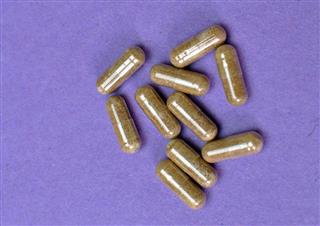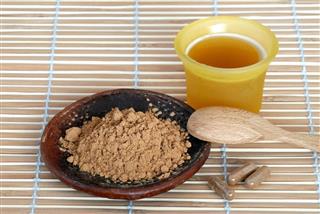
Taking a note of the ginkgo biloba dosage is crucial in order to reap maximum benefits from this herbal supplement and at the same time, avoid overdose symptoms. The recommended daily dose of ginkgo supplement for adults is 120-240 mg, which should be taken in two to three smaller doses.
Ginkgo biloba is the only living species of the division Ginkgophyta. In short, there is no other plant species related to this oldest-known tree (fossils dating back 270 million years). Hence, while studying the evolution of plants, it is frequently cited as an example of living fossil.
The species name biloba of this large deciduous tree is coined with reference to the shape of the foliage, having two distinct lobes. Besides evolutionary importance, it holds a valuable place in herbal medicine. However, as with any herbal drug, the dosage is a topic of concern when it comes to taking its supplements. In this HolisticZine article, along with its recommended dosage, we will take a look at the health benefits and probable side effects as well.
Ideal Dosage
Ginkgo biloba nuts, after cooking, are consumed in many parts of the world. Rich in antioxidants, they are useful to fight against free radicals in the body. Considering its uses in traditional healing, several studies have been done pertaining to its therapeutic effects. At present, the extracts and supplements are enlisted among the most sought-after herbal products in the United States. Health care specialists often prescribe them as medications for treatment of certain diseases.
Speaking about the dosage, it refers to the amount of ginkgo supplements that are considered safe for consumption. Needless to say, administration of correct dose is imperative for all types of medications. The same is applicable to the supplements; a very low amount does not show positive responses while higher doses may lead to adverse effects. Also, the prescribed dosage differs based on the health condition, for which the supplement is being recommended.
Provided that the supplement contains active ingredients in appropriate concentrations (6 percent terpenoids and 24 percent flavonoids), the general dosage for ADHD or other ailments is 120 mg to 240 mg per day. It is to be kept in mind that this dosage should be split up into two or three smaller concentrations while administering. Coming to the dosage for tinnitus, 160 mg (taken in small doses) is recommended.
Health Benefits
The most profound benefit of the herb lies in enhancing the mental health of an individual. It is claimed that the active ingredients present in ginkgo are effective for improving memory, mental alertness, concentration level and also, for reducing mental fatigue. It also increases blood circulation, maintains the blood vessels, regulates normal blood coagulation, and helps to combat tinnitus problems.
Side Effects
Ginkgo biloba possesses blood thinning properties, hence people who are on medication related to thinning of blood or anticoagulants should refrain from the supplements. Children and pregnant women should also take it under medical supervision. Some of the side effects manifested after taking the products are gastrointestinal discomfort, nausea, headache, and restlessness. In order to minimize side effects, one should take ginkgo in correct doses.
As far as the dosage for children is concerned, there is no reliable medical data that supports the therapeutic usage of ginkgo for children. Thus, recommended dose of ginkgo supplements for younger age groups is still not clear. Before taking ginkgo biloba, seek medical advice in order to reduce the risks and probable side effects.
Disclaimer: This article is for informative purposes only and does not in any way attempt to replace the advice offered by an expert on the subject.




